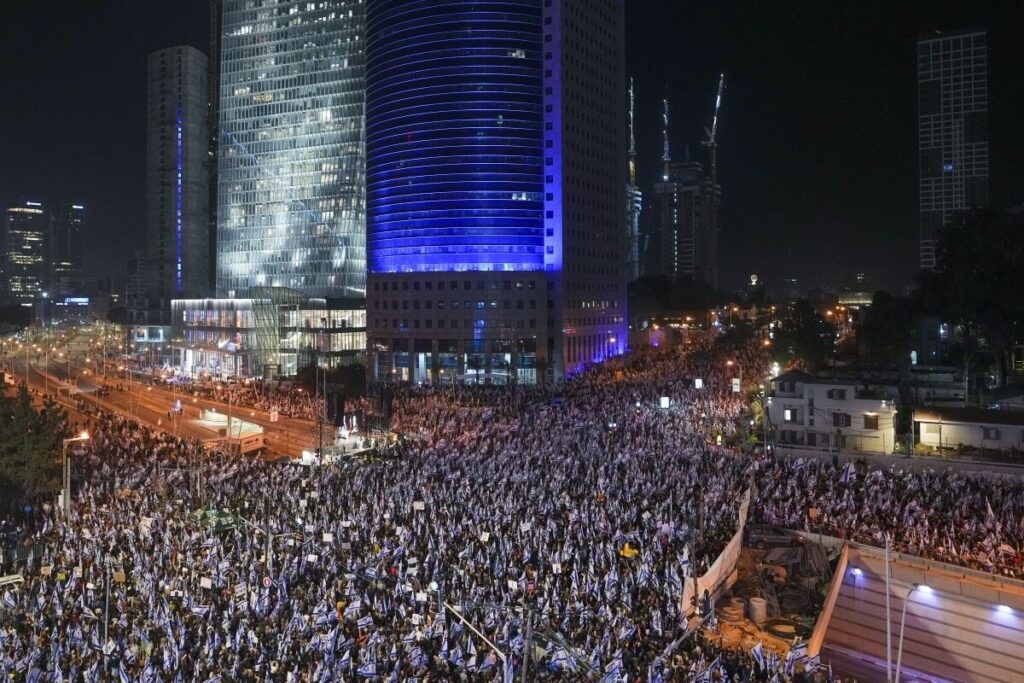Liberal democracies are beleaguered nearly everywhere. Numerous academic books predict their imminent demise and how the end of democracy will come about. One cause of democracy’s crisis is paradoxical: its astonishing success in the last few decades. No other system of government is now as legitimate as democracy, and perhaps no other system is legitimate tout court.
Autocracy, aristocracy, monarchy – none of them is a credible competitor. This is an unprecedented situation in history.
Moreover, like monarchies in the medieval and early modern periods, modern democracy has become sanctified. In those periods, one was allowed to criticize this or that ‘evil councillor’ of the ruler, but not the ruler. It is only in authoritarian countries, such as Russia, Saudi Arabia and Turkey to name a few or illiberal democracies such as Hungary, that it still is forbidden or dangerous to criticize the ruler.
In our time, one can criticize this or that failing of a particular democracy, but not the principle of democracy itself.
Democracy’s only and exceptionally dangerous rival now is another kind of democracy: ‘real democracy’ or a form of populism. Hence the prevalent pattern of political crisis in so many countries is one where elites are challenged and discredited (often by other elites) in the name of the people, demanding greater power and representation. The most recent instance of this pattern is now playing out in Israel but is far from the only country where this is currently happening.
The new government of Prime Minister Netanyahu has launched what it calls a ‘reform of the judicial system’ - aimed ostensibly at reining in the power of the Supreme Court and its ‘unelected judges’, reinforcing the power of the people and reviving ‘real democracy’. The plan’s opponents call it a ‘judicial coup’ or ‘revolution in government’.
Both camps have adduced examples of other countries’ judicial systems to support their stances. Some refer to the United States, other cite the cases of Hungary and Poland. None of these comparisons is genuinely relevant. For example, Hungary and Poland are EU members and subject to the European Court of Justice. The limits on government provided by the EU or the US Constitution are simply lacking in Israel.
Many Israelis, therefore, fear for their freedoms and way of life. The proposed judicial overhaul has provoked massive protests and street demonstrations.
Leaving aside the substantive constitutional issues, a striking political aspect of the proposed judicial overhaul is that the reaction against it caught the government by surprise. The government evidently did not expect the intensity, broadness, and social composition of the counter-mobilization – ranging from top bankers, ex-chiefs of security and intelligence agencies, through leading jurists and economists, to ordinary people from all walks of life.
The opposition to the judicial reform/revolution appears to cut across some – by no means all – of Israel’s familiar social and political divides. This absence of foresight on the government’s part is alarming since it suggests a singular lack of perception of some critical social and civic foundations of Israel’s political and social order at present.
The high-tech sector
One recent foundation is the high-tech sector. Over the past two decades, it has generated unprecedented wealth, making up more than 50 per cent of Israel’s exports (as of 2021). It has also become a cultural symbol of Israel as a thriving nation that produces innovative, enterprising people, and of individual economic success and upward social mobility.
Companies and high-tech leaders opposed the government’s judicial overhaul right from the start and warned of its likely disastrous effects on the industry. Both the capital and the people in the high-tech sector are highly mobile. Both can easily and quickly move outside Israel. And indeed they do – in part for financial considerations, in part as a means of protesting against the government.
The people’s army
A longer-standing foundation of Israel’s political and social order is Israel Defense Forces (IDF), the people’s army. While the IDF has undergone substantial changes in recent decades, it has remained a potent symbol of unity outside most political disagreements. It is still the central component of the implicit contract between the state of Israel and its citizens.
Few states demand from their citizens more than Israel. Long years of military service are mandatory, and given the situation prevailing in Israel’s corner of the world, the soldiers’ readiness to sacrifice their lives is not a remote possibility.
Recent days have seen a growing stream of public statements by reservists to the effect that they would not respond to a call to arms if the proposed laws were enacted. The reservists who made these statements serve in units which are crucial to the military’s operational capabilities. This development is hardly surprising from a broader historical and social perspective,
The social contract
Historically, democratic rights and freedoms are not the results of lofty ideals or the benevolence of rulers. They resulted from rulers’ weakness and dependence on the populations they nominally ruled.
A prime example is the Magna Carta, which contains ‘the animating principles of consent to taxation, due process, and the rule of law’, as a notable historian describes it. It was granted by King John only when he faced an armed rebellion of his barons who sought to end his abuse of power and limit his authority.
Many other rulers who wished to impose taxes to finance their expensive policies found that they had to pay a political price by granting powers, rights and freedoms. A common tax levy in medieval Germany was called Bede. The name, denoting ‘request’, gives away the initial weakness of the rulers.
Indeed, one of the historically most common conditions for the development of government by consent was the availability of ‘exit options’ for the population. If you could just pack and leave when the ruler asked for too much, the ruler had to listen and negotiate.
Lessons from Machiavelli
One does not have to read heavy-going social science literature to know this. The vivid prose of the Italian Renaissance diplomat and philosopher Niccolò Machiavelli would be quite enough. He drew his prime examples from the history of Republican Rome. The Roman elite granted the plebeian masses civic rights not out of generosity of spirit but because the people would otherwise refuse to show up for wars.
Confronted with an oppressive, unresponsive governing class, the plebeians literally exited the body politic and seceded to the Sacred Mount. The aristocrats were compelled to give the people a constitutional share of power. A complex system of checks and balances evolved, which Machiavelli saw as the secret of Roman power.
He concluded that Rome’s historical greatness was the outcome of political freedom. The common people provided the warriors who conquered the world; in return, they demanded and gained the rights and protections of citizens. This pattern of enfranchisement repeated itself, in various guises, at different times and places in history.
Machiavelli’s name is linked to his model of a ruthless and deceitful ruler (“Prince”). In fact, he was in conflict with the ruling aristocracy in Florence and understood that the only way to defend the city against its many enemies was to establish a people’s army instead of hiring an army of mercenaries, which the Italian city-states used to do.
Robust civil society
It is nothing short of mind-boggling that the Israeli government did not realize that the judicial overhaul would be seen as a violation of what Israelis hold to be an unwritten yet very real agreement between the state and its citizens. The government did not consider that Israeli citizen-soldiers would likely respond by withdrawing from the agreement.
The overall impression is that the Israeli prime minister and leading government figures have been inhabiting a political bubble and hardly know and understand the civil society over which they purport to rule. Yes, Israel lacks the checks and balances of EU states or the US, but it is proving that it has a robust civil society that increasingly acts as a check on government power.
Israel is for now in a state of extreme uncertainty. But it may already have taught the world and itself one important lesson: the people are not necessarily a manipulable, amorphous mass that unscrupulous political elites can instrumentalize and inflame at will, and the choices they have to make are not necessarily those that competing elites sell to them in order to cling to the power they exercise in the name of the people.
The people may prove that their role is not limited to voting periodically and that they may well formulate a choice of their own. Whether or not this can work, and how, is as yet unclear. But however embryonic, this possibility, building on an existing social contract, appears somewhat less impracticable than it seemed just two months ago.
By Professor Hillay Zmora


